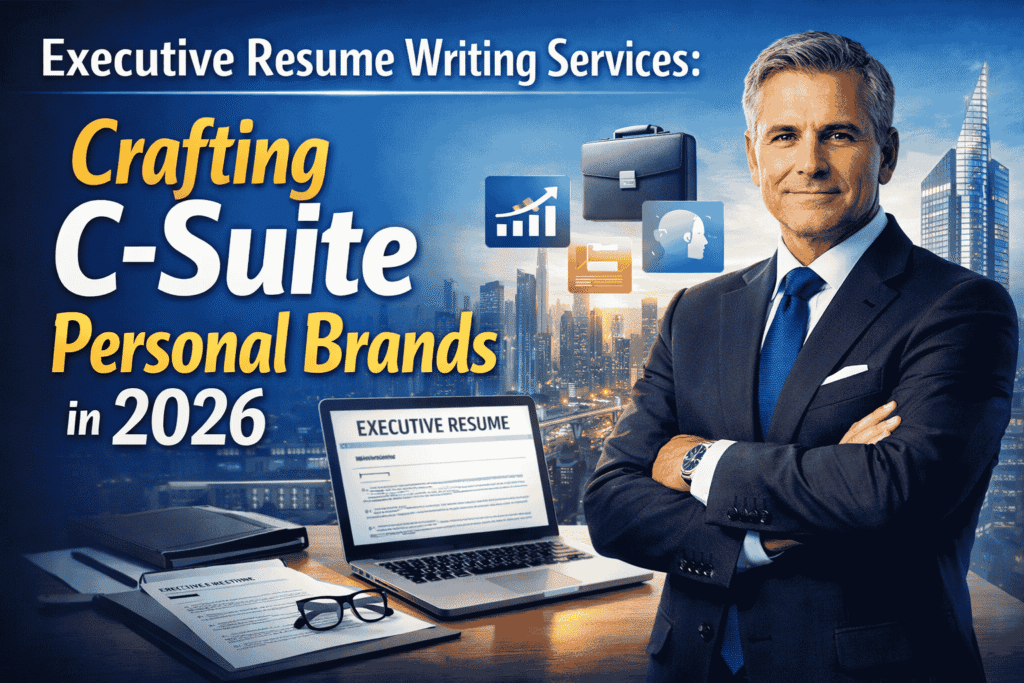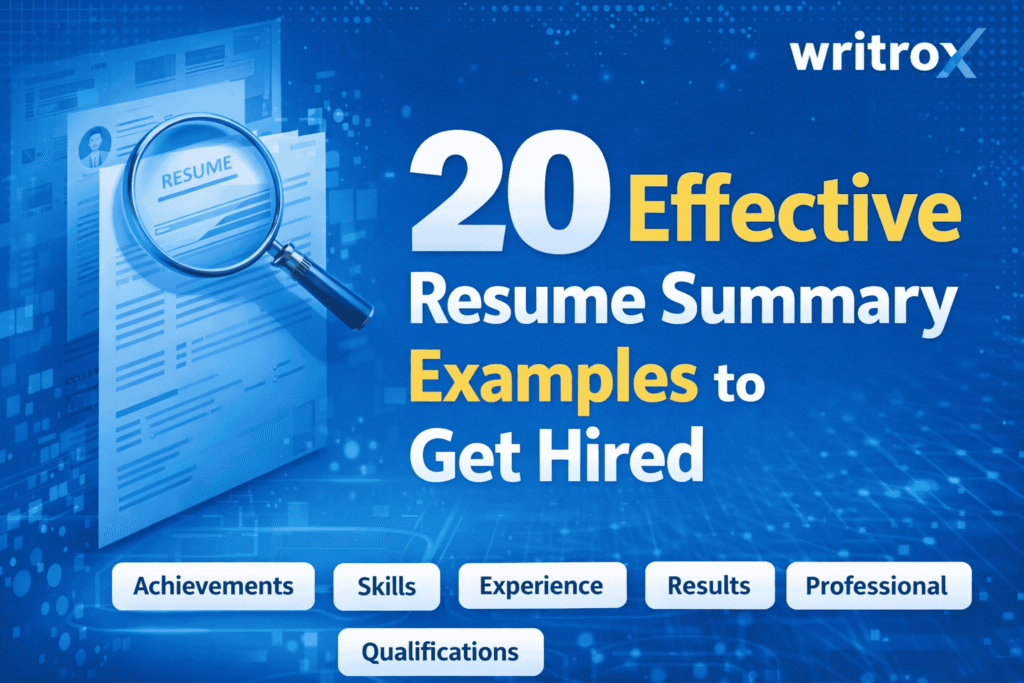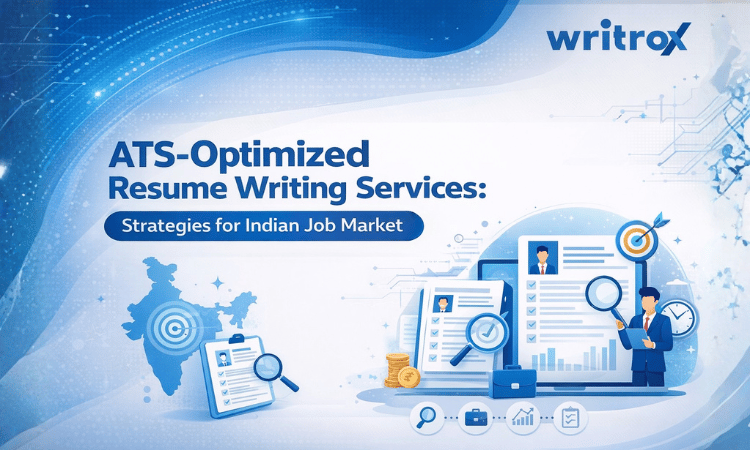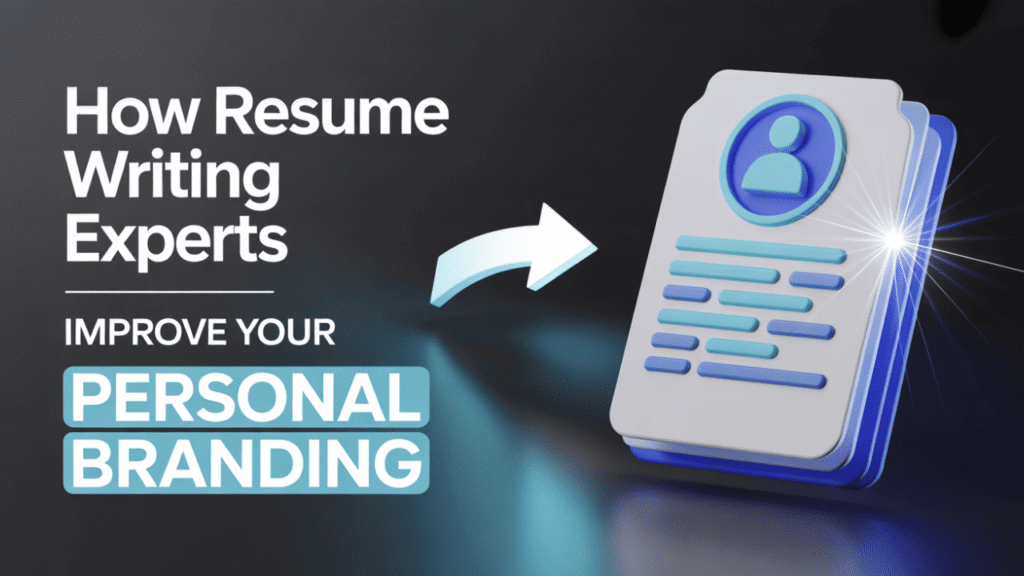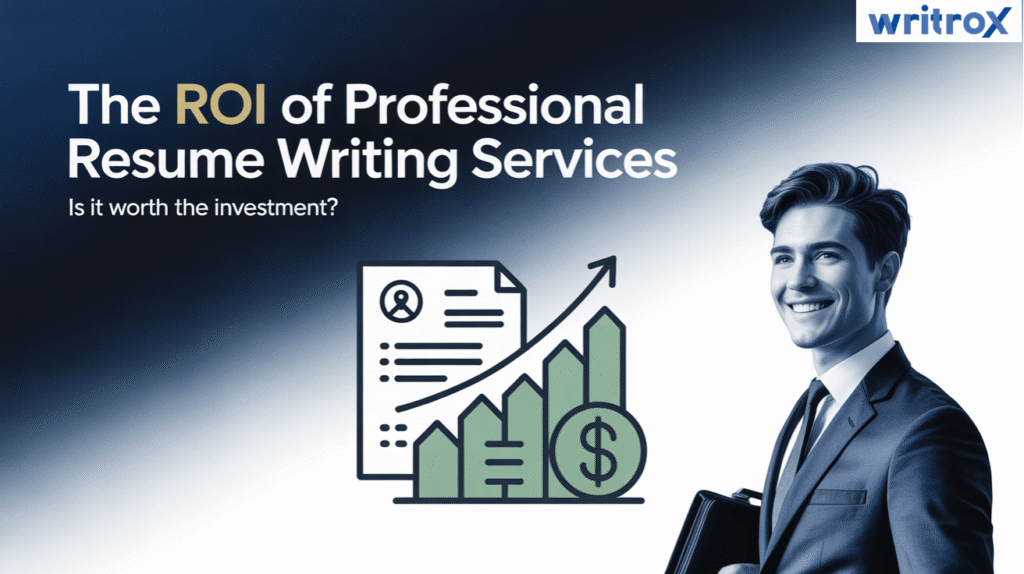Executive Resume Writing Services: Crafting C-Suite Personal Brands in 2026
This is 2026, and the landscape of executive hiring is evolving faster than ever before. In this latest hour, C-suite professionals are not just evaluated based on their past achievements—they are assessed on their leadership narrative, digital presence, industry insight, strategic vision, and ability to communicate enterprise value with precision. This is where executive resume writing services play a defining role. Instead of delivering a conventional career summary, these services build strategic leadership brands that reverberate with investors, boards, and executive search firms. For today’s senior leaders, their resume is not just a document to demonstrate their experiences and skills as an industry expert. It becomes a strategic communication tool that shapes opportunity and credibility. As organizations seek transformational leaders capable of globalization and huge technological transitions, the demand for tailored and communicative executive resumes is expected to increase in 2026. Why C-Suite Executives Need Professional Resume Writing Services in 2026 The Evolving Executive Job Market Landscape In this latest time, executive hiring has become more competitive than in the last 10 years. Hence, the process has included some specializations to achieve clarity and insight. Enterprises are not just replacing leaders—they are seeking individuals who can reshape their business model, drive innovation, and guarantee long-term growth in business. In-depth evaluations are conducted by executive search firms that mainly consider: Even accomplished leaders are facing challenges while communicating these dimensions and seek professional executive resume writing services to promote themselves as strategic architects with high-performance capabilities. Specialized C-suite resume writing services help these leaders in moving across industries, pursuing portfolio careers, joining boards, or launching ventures. How AI and ATS Systems Have Raised the Bar for Executive Candidates Advanced technologies have brought major and visible changes in the executive recruitment procedure. An Applicant Tracking System, or ATS, helps recruiters to evaluate resumes not only based on keywords but also on clarity, structure, and contextual relevance. AI-driven screening tools examine: Therefore, an ideal executive resume must have a perfect blend of human touch and machine readability. The resume should not have vague descriptions, generic formatting, or inconsistent terminology that can reduce the visibility of the document in a significant manner. On the other hand, advanced executive resume writing services combine strategic storytelling with technical optimization. What Sets Executive Resume Writing Apart from Standard Services Personal Branding vs. Simply Listing Accomplishments Standard resume writing generally focuses on documenting the career history of a professional. On the other hand, a well-crafted executive resume focuses on shaping the professional identity of that executive. C-suite leaders’ resumes must communicate: This is known as personal branding at the highest level in this modern landscape of executive hiring. The resume has answers to critical questions like why the leader is uniquely qualified for reshaping the future of that organization. Quantifying Leadership Impact at the C-Suite Level Senior leadership’s influence operates at scale. Greater executive achievements at the C-suite level affect the entire organization, industries, and markets. With an effective executive resume, you can quantify: Right quantification in the resume depicts measurable strategic influence. It also transforms leadership from descriptive to demonstrable. This plays a critical decision-making role in the executive selection process. Core Elements of a High-Performing Executive Resume in 2026 Executive Summary That Commands Attention Seasoned experts of professional resume writing for executives understand the significance of the executive summary. It is not only one of the most critical sections of the resume to communicate strategic focus, but it also establishes authority and frames leadership values. A strong executive summary includes: This opening section of the resume immediately proves credibility to decision-makers reviewing dozens of executive profiles in a day. Leadership Narrative and Career Progression Story Executives in today’s competitive world receive evaluations based not only on their overall performance but also on their career trajectory. Decision-makers want to understand how leadership responsibility has expanded over time. Here comes the impact of executive resume writing services that help recruiters make informed decisions. A clear leadership narrative helps decision-makers in understanding the increasing scope of influence and transformational initiatives of the candidate. Specialized resume writing services construct a comprehensible progression story that demonstrates intentional leadership evolution. Metrics-Driven Achievement Statements for Senior Roles When you reach the C-suite executive level, your responsibilities within an organization matter more than results. Achievement statements that are mentioned in your resume must showcase scale, complexity, and long-term value. Effective examples include: How Writrox Approaches C-Suite Personal Brand Development Discovery Process—Understanding Your Executive Identity The process of executive positioning starts with deep discovery. Rather than reviewing the career history, the process includes vital factors like measuring leadership philosophy and strategic strength through: The premium Executive Resume Writing Services of Writrox help executives in developing authentic personal branding. Aligning Resume, LinkedIn Profile, and Executive Bio Modern executive visibility extends beyond a single document—the resume. Recruiters, executive search firms, and decision-makers review the digital presence and public positioning of the candidate before final decisions. A comprehensive executive branding requires: To prove one’s integrated positioning in a certain industry, consistency, clarity, and credibility across all professional platforms must be demonstrated clearly. Industries and Roles We Specialize In CEO, COO, CFO, and CTO Resume Writing At Writrox, we deliver a wide array of professional resume writing services. We have especially talented writers dedicated to delivering professional resume writing for executives. We understand that senior leadership roles demand highly specialized positioning. The executive resume must precisely communicate the unique strategic responsibilities of each function and position. The resume mainly focuses on: Tailored messaging ensures role-specific authority can be reflected clearly through every word of the resume. Board-Level and VP-Level Executive Positioning When an individual gets the chance to extend their career path beyond operational leadership into governance and advisory roles, positioning for these opportunities requires emphasis on: Specialized executive resume writing services help leaders showcase readiness for both oversight and operational responsibilities. Common Mistakes Executives Make When Writing Their Resumes Many executives spend words to describe their responsibilities in their previous or current position. They fail
Executive Resume Writing Services: Crafting C-Suite Personal Brands in 2026 Read More »



